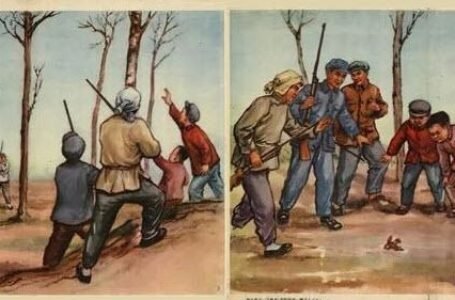Kanhopatra: The Courtesan Turned Devotee Who Took Her Last Breath at Lord Vithoba’s Feet
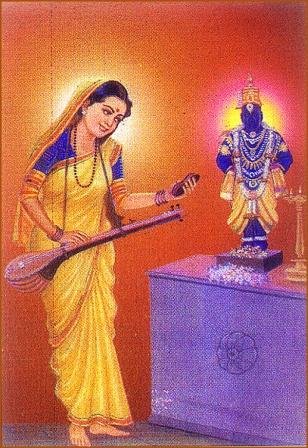
She was looked upon with disdain, for she was a courtesan’s daughter. Courtesan – her entire life revolved around this very word. She was scorned and harassed to the extent that she began detesting her radiant and exquisite beauty and this profession. She never wished to walk in her mother’s footsteps. After being denigrated, condemned, disparaged, and used by the society she turned towards devotion and finally found refuge at the feet of Lord Vithoba.
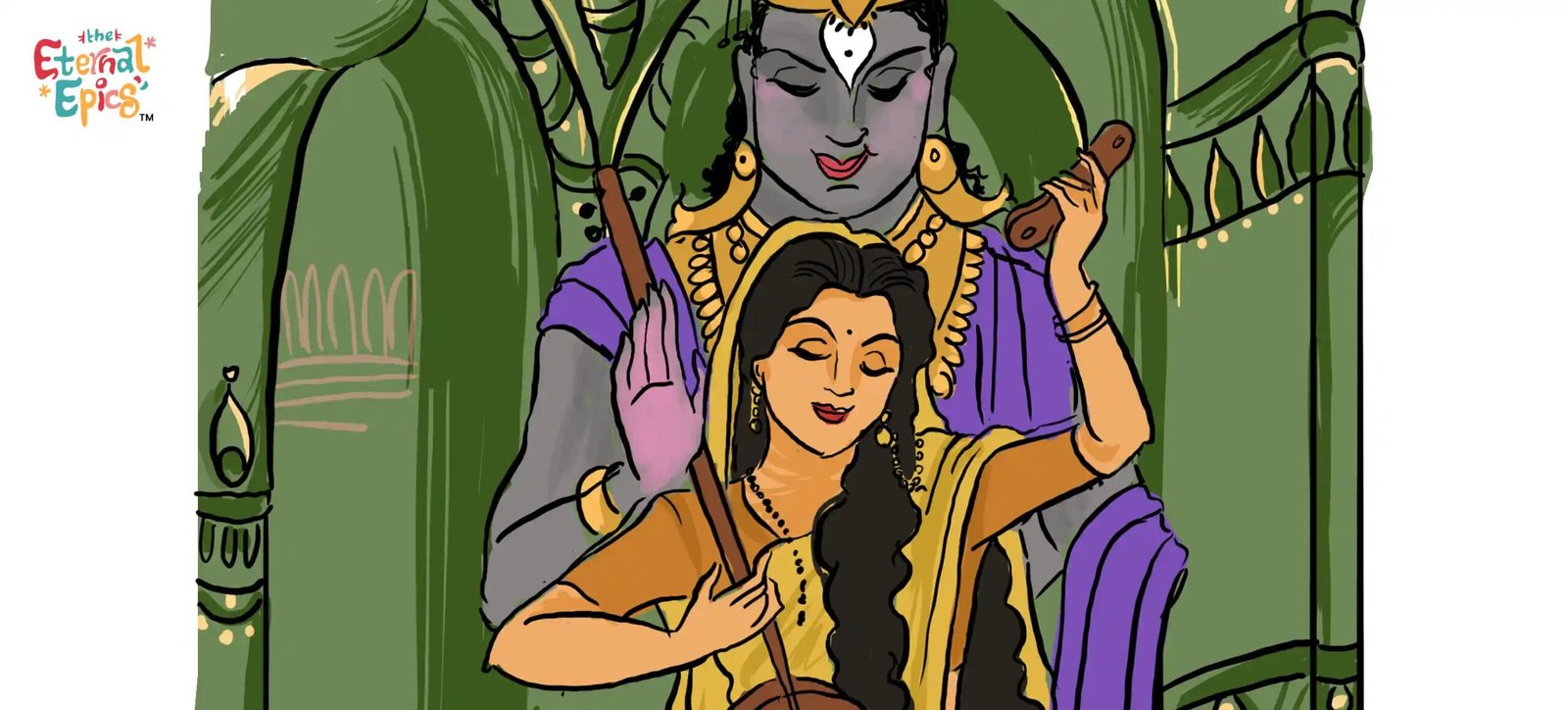
She was Kanhopatra – the venerated Marathi Warkari poet-saint celebrated for her unwavering devotion and soulful abhangs. Kanhopatra slipped into an eternal rest by ultimately making her own identity. She effaced the label of ‘courtesan’s daughter’ and left this materialistic world as a revered warkari poet.
Kanhopatra represents us – all the women, and her courageous story of defying the society, being a non-conformist, making her own identity is our story. Women still battle to make their own identity, women are still considered an object, and a property, she is still looked upon with disdain if she is ambitious. Kanhopatra’s inspiring story mirrors our own struggles. Her pain reflects our pain. Her solace in devotion is the support we seek.
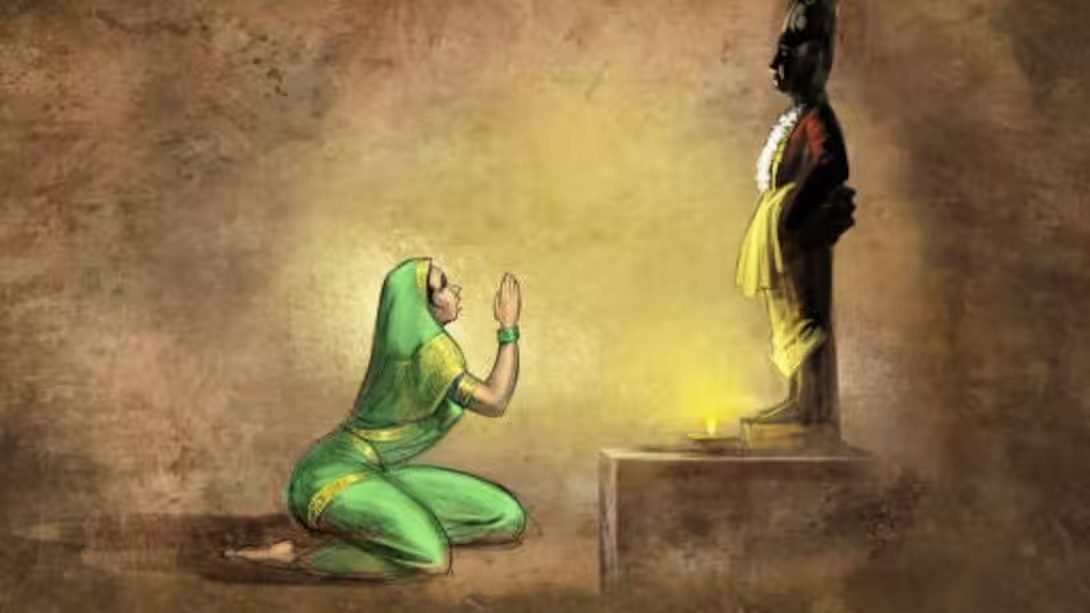
Oh Lord of all Gods,
please don’t test me
so severely!
my soul seeks freedom
from this body,
like a deer’s fawn
caught by a tiger.
You are my only refuge
in this universe
help me, Vithabai,
Oh, mother!
I am suffocated
and falling apart,
please, welcome me
in your heart.
Kanhopatra was born in 15th century in Mangalwedha, Maharashtra to an affluent courtesan, Shyama. Kanhopatra was the paragon of enthralling beauty. She was so breath-taking that her beauty was compared to apsaras (celestial nymphs). Kanhopatra was a gifted dancer and singer. Her mellifluous voice could mesmerize anyone. Kanhopatra had all the comforts, she had maids hovering around her all the time, however the only thing she lacked was respect. Being a courtesan’s daughter, she was never ever seen in a positive light because societal judgement always overshadowed her.
Kanhopatra always desired to marry a man who surpassed her beauty. Being disdained and scorned by the society, she had started despising her mother’s profession and never wanted to become a courtesan herself. However, her mother wanted her to go to the Badshah of Bidar and perform in his court but turning her mother down Kanhopatra refused to enter this profession.
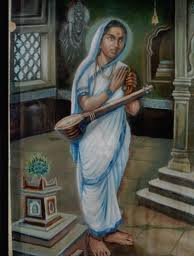
According to another version of story, Kanhopatra is believed to have actually worked as a courtesan despite her initial defiance. Moreover, she was also harassed by her own biological father Sadashiva, the headman of the town, who didn’t back off in spite of Shyama telling him the truth that Kanhopatra was his own daughter.
Stressed and depressed by the bondage of her profession, Kanhopatra visited Pandharpur – the spiritually significant town which birthed yet another revered warkari poet-saint Janabai, where she heard glowing praises of Lord Vithoba by the visiting devotees. She enquired about his beauty to which people replied saying, “He is so mystically alluring that he can bewitch you.” Hearing this Kanhopatra straightway dashed towards the Vithoba’s temple chanting and singing abhangs in her mellifluous and honey-coated voice, which beguiled all the devotes.
As soon as she stepped into the temple, she was enveloped by calmness and solace. She felt as if someone had extricated her of all her troubles and problems. She felt lightweight and filled with joyous serenity. Since then she found a refuge in the sanctuary of Lord Vithoba’s temple. She would eagerly and ardently clean the temple, sing for the idol, and devotedly worship it, and spend her time composing heartfelt abhangs dedicated to the Lord. This was the best phase of Kanhopatra’s life, for now she was liberated from all the clutches of her profession, harassment, scorn, disdain, and abuse. She was happily spending her time in the embrace of Lord Vithoba, whom she had already married in her mind.
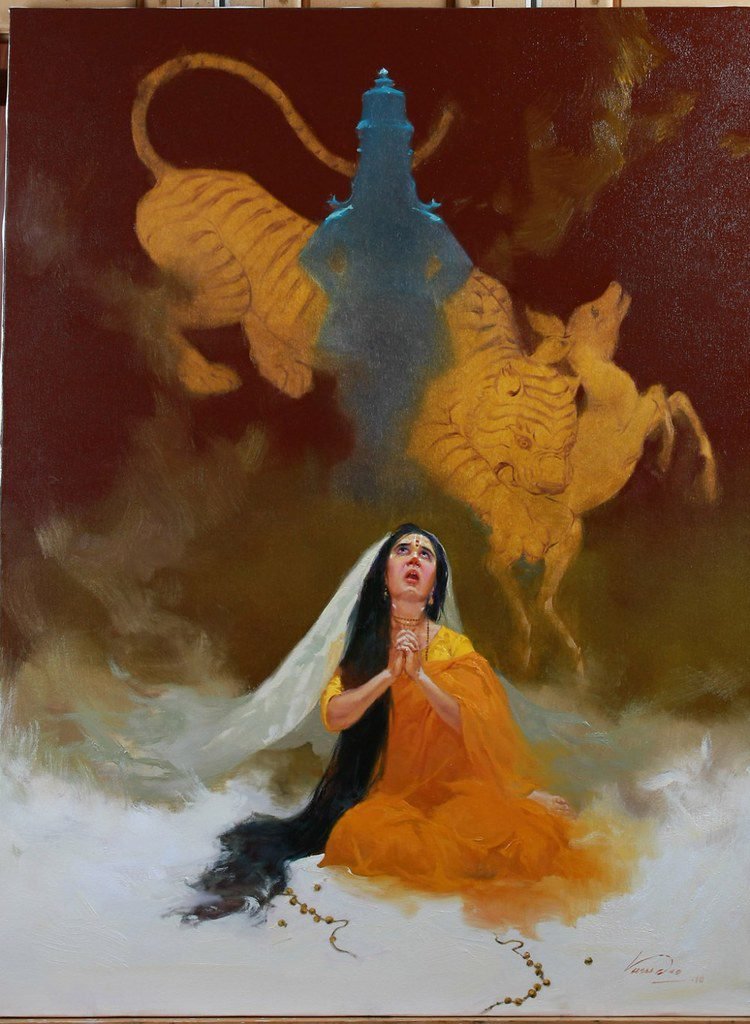
However, her happiness was short-lived, as the Badshah of Bidar got wind of her unparalleled beauty and decided to make Kanhopatra his concubine so the Badshah sent his men to bring her in his court. When Badshah’s men arrived in the temple, Kanhopatra got extremely worried about her safety. She didn’t want to become a concubine, for she abhorred that profession. She was euphorically pursuing devotion at the feet of lord Vithoba.
When Badshah’s men didn’t give up following her staunch refusion then Kanhopatra went to Lord Vithoba’s idol, tearfully supplicating a way out of this predicament. According to popular legends, Kanhopatra committed suicide at the feet of Lord Vithoba instead of becoming Badshah’s concubine.
The priest laid Kanhopatra to rest in the southern part of the temple, where a tree miraculously sprouted on the spot and still continues to thrive. This is how Kanhopatra – the courtesan’s daughter departed, reborn as Kanhopatra – the devout devotee.
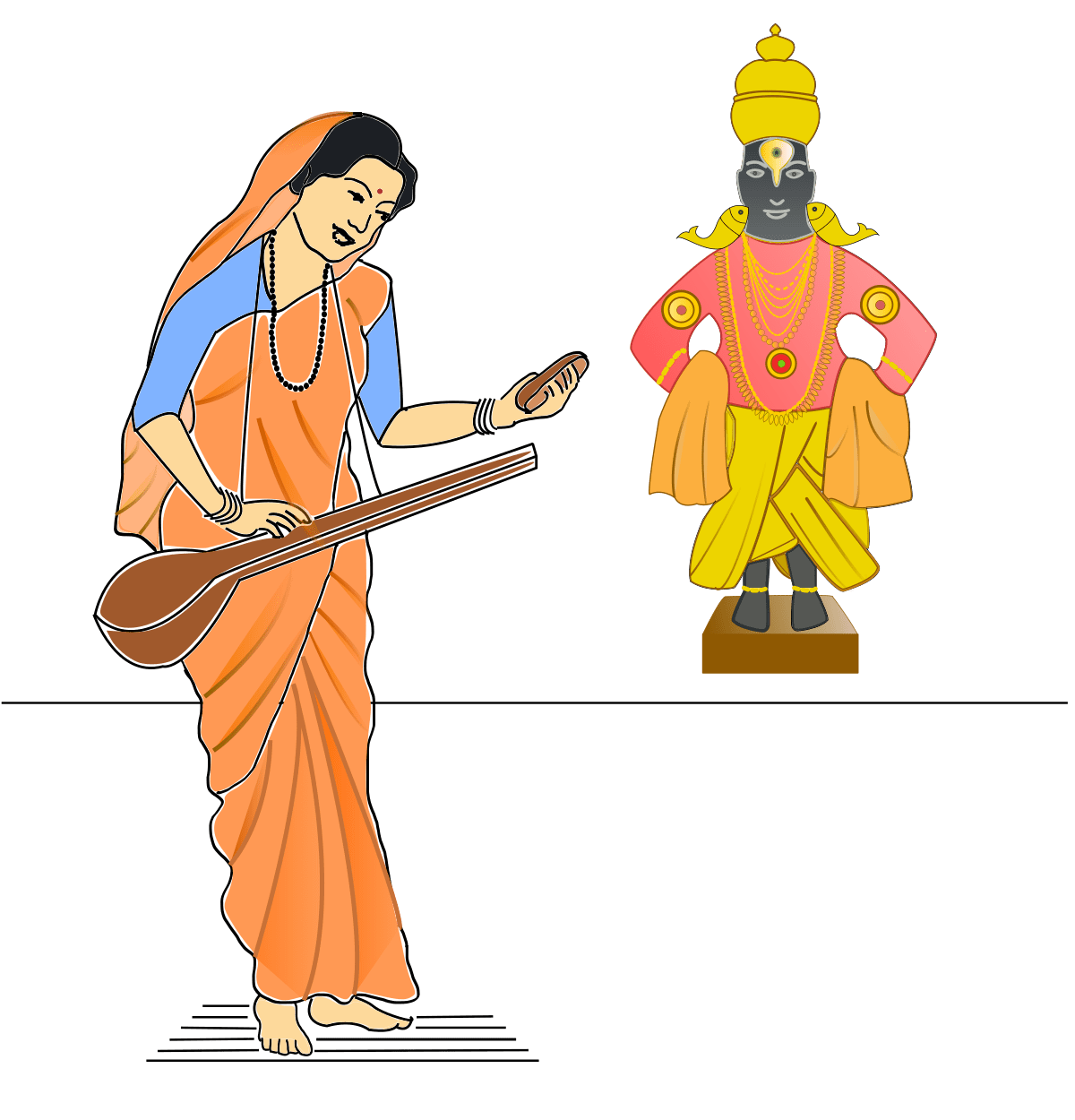
The one who repeats your great Name
is a threat even to Death,
it has saved the vilest of people
without putting merit to test.
The prostitute Pingala,
Ajamila the sinner king,
even the robber Valmiki
became pure with your Name
on their tongues.
Kanhopatra’s shoulders too,
are laden with your garland of names.
Achievement
The notable achievements of Kanhopatra encompass:
- Literary Legacy
Kanhopatra has composed 30 abhangs out of which 23 are included in anthology of warkari saints called ‘Sakal Sant-Gatha’. In her soulful poems Kanhopatra is seen asking Lord Vithoba to extricate her from the bondage of her profession. Her poems illustrate her struggle between her profession and devotion of Vithoba.
According to vocalist, Vasant Deshpande, “Her poetry reflects awakening of the downtrodden.”
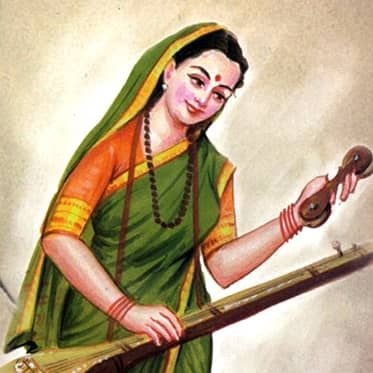
O Narayana, you call yourself
savior of the fallen
and wear this as your challenge
to the world.
Oh Lord, I beg you,
keep to your word.
My caste is impure,
I lack loving faith,
my nature and acts are vile.
Fallen Kanhopatra offers herself at your feet,
a challenge to your claims of mercy.
- Epitome of Feminine Strength
Kanhopatra truly was an embodiment of feminism. She fought against the society till her last breath and never succumbed to their norms, injustices, and stereotypes in lieu she always followed her heart in the quest of refuge, serenity, and liberation. Her passing stands as a profound symbol of her triumph over this patriarchal and chauvinistic male society which relegate women to a mere object. Her death poignantly underscores her right over herself and her body, underscoring that no one has got the prerogative to control or dictate her.
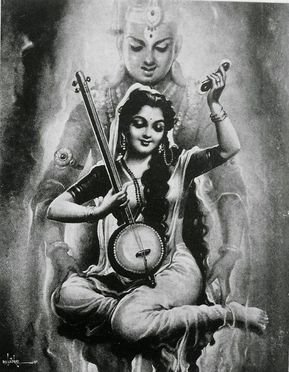
- Devotional Legacy
Kanhopatra left an indelible mark on the warkari movement through her heartfelt abhangs. She re-shaped the Bhakti Movement altogether by representing all the downtrodden like her.
- Movies After Her
A Marathi movie called ‘Kanhopatra’ was made to pay homage to the divine legacy of saint-poet Kanhopatra.
- Kanhopatra is the only person whose mausoleum is within the precincts of the temple.
- She is the only female warkari saint to attain sainthood without the support or spiritual guidance of any male warkari saint.
Legacy
Kanhopatra is no more but her timeless legacy still continues to inspire millions of us. Her impactful poems written straight from the soul deeply touch our heart. Kanhopatra was one of a kind and her extraordinary story of great valour is a deep source of inspiration for all the women out there.
Kanhopatra defied the societal norms and departed making her own identity. She is a trailblazer of female devotion, feminine strength, and female ambition.
Today have borne fruit,
my upright pursuits
worth scores of lifetimes.
Rare is the treat,
the mere sight of
my lord Vitthal’s feet.


